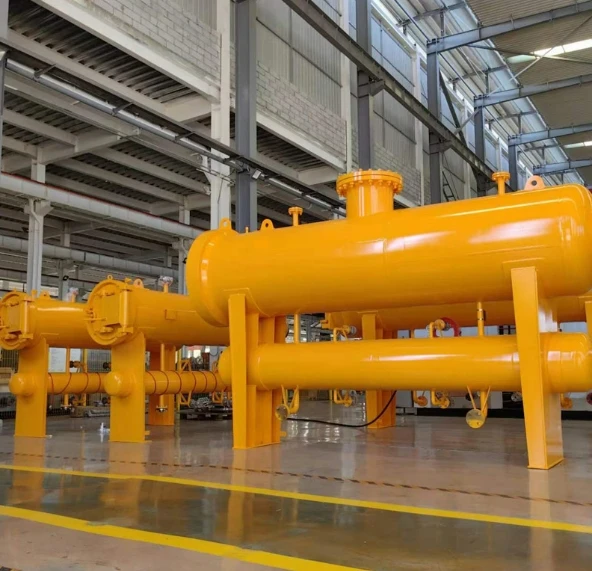
Dec . 29, 2024 19:50
Back to list
filter separator
The Importance of Filter Separators in Industrial Applications
In various industrial processes, the separation of different components is crucial for efficiency, safety, and product quality. Among the numerous tools available for achieving this goal, filter separators stand out as vital equipment in many sectors, including oil and gas, water treatment, and chemical manufacturing. This article explores the role, functionality, and significance of filter separators in modern industrial practices.
A filter separator is a device designed to remove impurities and separate different phases of a fluid. Typically, it works by combining filtration and separation processes to ensure that both solid particles and liquids (such as water from oil) are efficiently removed from a system. The technology often employs various mechanisms, including gravity separation, centrifugal force, and the use of woven mesh or porous materials to trap unwanted particles.
In the oil and gas industry, the importance of filter separators cannot be overstated. Crude oil extracted from the ground is often accompanied by water, gas, and sediment, all of which can negatively impact the efficiency of refining processes and the quality of the final product. Filter separators help in diverting these unwanted elements, ensuring a cleaner output that is ready for further refinement. By effectively separating oil from water and other impurities, filter separators not only enhance product quality but also reduce wear and tear on equipment, leading to lower operational costs and longer machinery life.
filter separator

Furthermore, in the process of water treatment, filter separators play an equally crucial role. Industrial wastewater often contains a mix of solid debris, oils, and other contaminants that can pose environmental hazards. By installing filter separators, industries can significantly improve their water recycling efforts. These systems remove harmful substances before the water is either reused or discharged back into the environment, thus helping companies comply with stringent environmental regulations.
In chemical manufacturing, filter separators facilitate the production of high-purity materials by removing impurities that could alter the properties of the final product. Whether it’s pharmaceuticals, food additives, or specialized chemicals, the necessity for purity in these products is paramount. The use of filter separators ensures that production processes remain efficient and that the end products meet the requisite quality standards.
The development of advanced filter separator technologies has also led to improvements in performance. Innovations such as automating the cleaning processes can prolong the service life of filters and reduce downtime. Additionally, modern filter separators are often designed to handle higher flow rates and adapt to varying operational conditions, making them versatile instruments in dynamic industrial environments.
In conclusion, filter separators play an essential role in enhancing operational efficiency across numerous industries. By effectively removing impurities and separating different phases of liquids, they contribute to higher product quality, improved compliance with environmental regulations, and reduced operational costs. As industries evolve and face new challenges, the continued advancement and integration of filter separator technologies will be critical in sustaining productivity and ensuring the highest standards of quality and safety. As we move forward into an increasingly industrialized world, the role of these systems will only grow more significant in addressing the complex challenges of filtration and separation in industrial applications.
Latest news
-
Safety Valve Spring-Loaded Design Overpressure ProtectionNewsJul.25,2025
-
Precision Voltage Regulator AC5 Accuracy Grade PerformanceNewsJul.25,2025
-
Natural Gas Pressure Regulating Skid Industrial Pipeline ApplicationsNewsJul.25,2025
-
Natural Gas Filter Stainless Steel Mesh Element DesignNewsJul.25,2025
-
Gas Pressure Regulator Valve Direct-Acting Spring-Loaded DesignNewsJul.25,2025
-
Decompression Equipment Multi-Stage Heat Exchange System DesignNewsJul.25,2025

